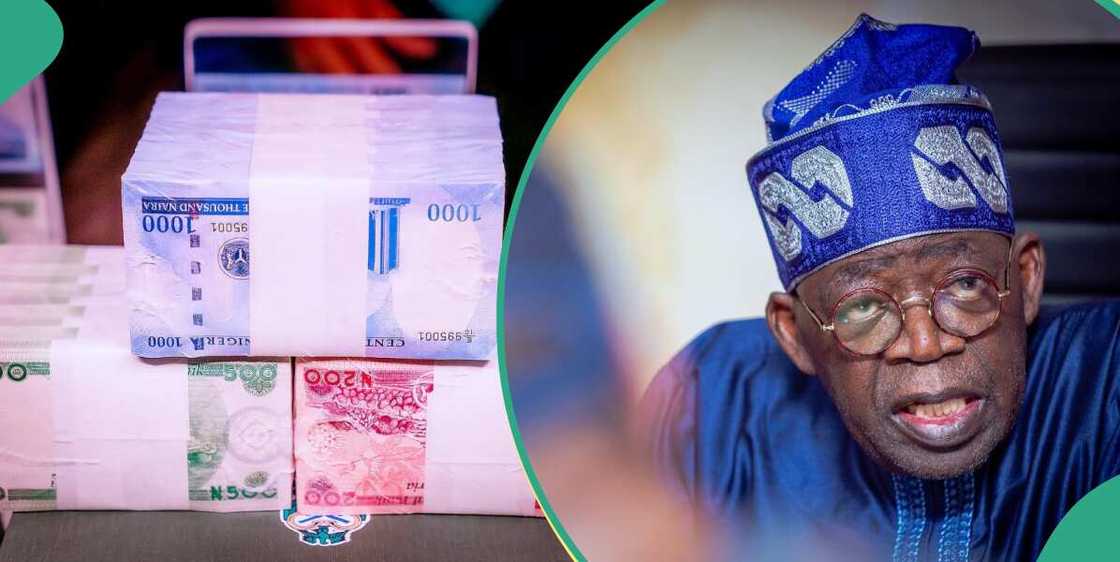Tinubu's Minister Speaks on CBN's Printing of Money to Finance Budget Deficit
- Nigeria's minister of budget has declared that the CBN would not be pressured into printing money to finance the budget
- The minister stated the federal government would instead explore other alternatives, including the issuance of bonds
- This declaration followed the high debt accumulated by the FG through borrowing from the CBN's Ways and Means advances
PAY ATTENTION: The 2024 Business Leaders Awards Present Entrepreneurs that Change Nigeria for the Better. Check out their Stories!
Legit.ng journalist Victor Enengedi has over a decade's experience covering Energy, MSMEs, Technology and the stock market.
The federal government has announced its decision to discontinue the practice of permitting the Central Bank of Nigeria (CBN) to print money through Ways and Means for budget deficit financing.

Source: UGC
It would be recalled that the federal government under the former president, Muhammadu Buhari, borrowed over N22 trillion loan from the CBN through Ways and Means advances.
Reports indicated that a significant portion of this considerable loan was sourced through the CBN's printing of the national currency, the naira.
PAY ATTENTION: Share your outstanding story with our editors! Please reach us through info@corp.legit.ng!
No more indiscriminate printing of naira
The minister of budget and national planning, Atiku Bagudu, revealed this information during a conversation with reporters in Lagos in light of the financial challenges affecting the 2024 national budget,
According to Vanguard, Bagudu pointed out that the government would instead turn to the issuance of bonds as an alternative strategy.
He stated:
"The central bank is not going to print money for the government anymore. If, to the extent that we would borrow from the Central Bank, it is going to be within what the law allows.
“The law allows that we can borrow but not more than 5% of the previous year’s revenue. What we have been doing wrong is to go beyond that 5% limit."

Read also
CBN tells Nigerians to anticipate new price of petrol as Dangote, Refinery, others start production
Bagudu highlighted that, in lieu of the previous practice, the government would opt to issue bonds.
He further emphasised that this approach offers a unique opportunity for private investors with available capital to invest in government bonds.
FG to borrow to service budget
Regarding the inclusion of additional borrowing in the budget despite the existing high national debt, Bagudu explained that there remains a minimum of financial requirements that must be addressed.
He said:
"As much as you would want to cut back on borrowing, there’s an irreducible minimum that you need to do.
“So we need an irreducible minimum of spending and we don’t have the money to meet that irreducible minimum. There are countries in the world that collect 50% of their GDP as revenue."
He observed that a nation is in a precarious situation when it lacks sufficient revenue but is burdened by irreducible minimum commitments.
However, analysts have continued to warn the government of the implications of Nigeria's ballooning debt profile, according to Legit.ng report.
Analyst reacts to CBN's printing of money for budget
Ifeanyi Jeremiah Ubah, a Lagos-based financial analyst, told Legit.ng that printing money to cover budget deficits poses significant dangers for the Nigerian economy.
He said:
The foremost risk is inflation, as an increased money supply without a corresponding rise in goods and services can lead to soaring prices.
Additionally, excessive money printing can contribute to currency depreciation, making imports more expensive and potentially causing trade imbalances. The practice can also result in higher interest rates, deterring investment and impeding economic growth.
Moreover, it reflects a lack of fiscal discipline and can undermine investor confidence, potentially leading to capital flight.
He added that in the long term, relying on this approach can create a cycle of economic instability and hinder sustainable growth, necessitating a more prudent and comprehensive fiscal strategy.
Nigeria ranks among least indebted African countries
In related news, Legit.ng reported that the International Monetary Fund (IMF) highlighted that approximately 10 African nations maintain manageable debt levels relative to their Gross Domestic Product (GDP).
The assessment placed Nigeria in the category of African countries exhibiting low debt-to-GDP ratios, despite persistent calls from within the country to curb its borrowing tendencies.
Nigeria's present debt portfolio has recently surged to N87 trillion, prompting the federal government to announce its intention to convert CBN's Ways and Means Advances into formal loans.
PAY ATTENTION: Donate to Legit Charity on Patreon. Your support matters!
Source: Legit.ng




